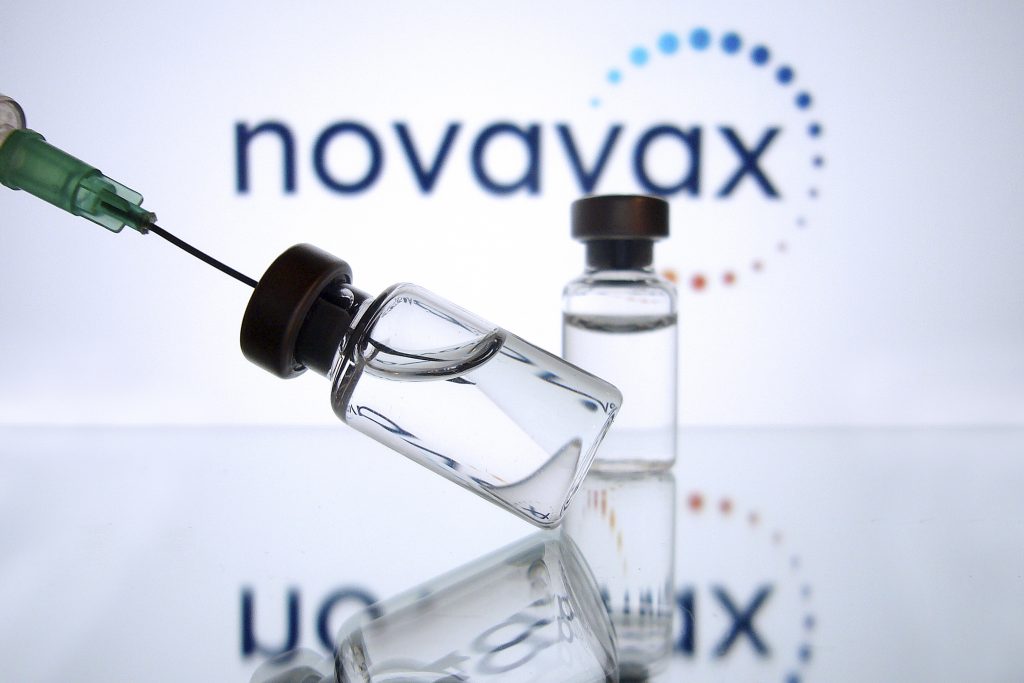The coronavirus vaccine produced by Novavax was approved by the European Medicines Agency (EMA) on Monday for use in the European Union, making it the fifth vaccine to be recommended by the agency.
The EMA’s human medicines committee (CHMP) granted the protein-based Nuvaxovid vaccine (also known as NVX-CoV2373) conditional marketing authorisation - the fast-track authorisation procedure to speed up approval of vaccines during public health emergencies in - for use in people aged 18 and over.
"Together with the already authorised vaccines, it will support vaccination campaigns in the EU Member States during a crucial phase of the pandemic," the agency stated in a press release.
After a thorough evaluation, the CHMP concluded that the available data submitted by Novavax met the EU criteria for efficacy, safety and quality.
This data is based on two main clinical trials involving 45,000 people of which the combined results show a vaccine efficacy of around 90%, which increases to 100% after the second shot, similar to the results seen in clinical trials of Pfizer and Moderna's coronavirus vaccines.
Related News
- Booster increases antibodies against Omicron 37-fold, says Moderna
- Confirmed: Belgium starts vaccinating children from 5 years old
As with the Pfizer, Moderna and AstraZeneca vaccine, the vaccine should be given as two injections, which should be administered three weeks apart.
The original strain as well as the Alpha and Beta coronavirus mutations were the most common viral strains circulating when the studies were ongoing, meaning there is limited data on the efficacy of Nuvaxovid against other variants of concern currently circulating, including Omicron and the Delta variant.
The observed side effects were usually mild or moderate and cleared within a couple of days after vaccination, with the most common ones being tenderness at the injection site, tiredness, muscle pain, headache, a general feeling of being unwell, according to EMA.
Beating vaccine scepticism and inequality
The vaccine, which contains a version of a lab-produced protein found on the surface of the coronavirus (the spike protein) as well as an ‘adjuvant’, a substance to help strengthen the immune responses to the vaccine, works by preparing the body to defend itself against COVID-19 if a vaccinated person comes in contact with the virus.
This is a more "classic" form of a vaccine, as this technique has also been used for vaccines against hepatitis B and the cervical cancer virus HPV, and is hoped to win over people who find the current vaccines, such as those relying on mRNA technology, "too experimental," and are hesitant to be vaccinated with them.
It has also been hailed as a good candidate to beat vaccine inequality in poorer countries, as it is easy and cheap to make, and can be kept in an ordinary fridge.
For this reason, the vaccine distribution alliance Covax, which distributes vaccines to low- and middle-income countries, already ordered 1.1 billion doses of the vaccine earlier this year.
In August, the EU signed a contract to order 100 million doses of the vaccine, with an option for an additional 100 million doses during 2021, 2022 and 2023. Belgium has ordered half a million doses.
The European Commission is now expected to announce a decision on the conditional marketing authorisation for Nuvaxovid so it can be included in EU countries' vaccination programmes.
EMA will soon publish an assessment report with details of its evaluation and the full risk management plan, as well as the clinical trial data submitted by the company in the application for marketing authorisation.

